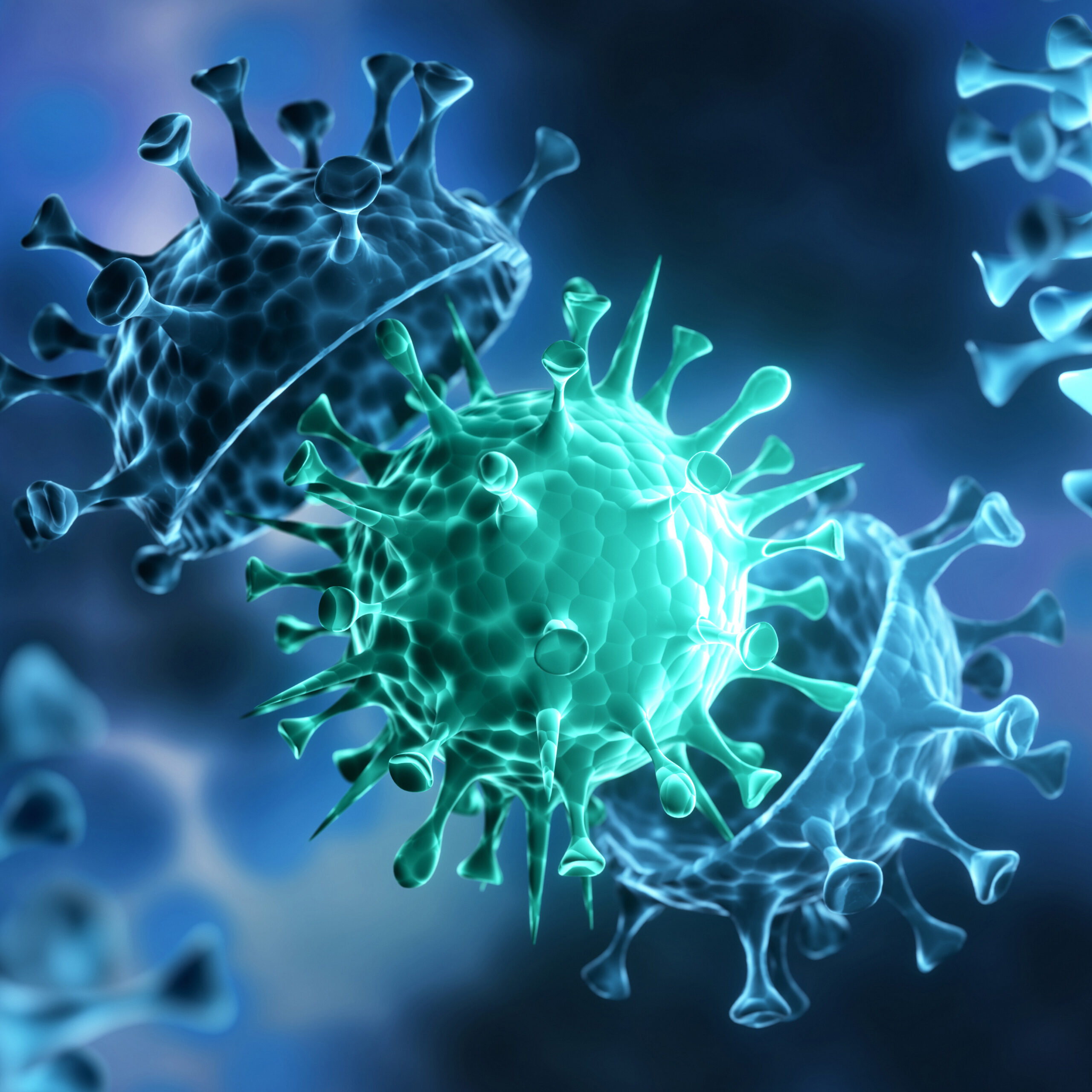
Panel is Designed for the Qualitative Detection of Four SARS-CoV-2 Genomic Mutations, Three of Which are Classified by the CDC as Substitutions of Therapeutic Concern
Panel is Designed to Serve as a Rapid Alternative to Next Generation Sequencing to Identify Patients Infected with COVID-19 that Contain Specific Mutations that May Impact the Efficacy of Certain Antibody Treatments
STONY BROOK, N.Y. October 25, 2021. Applied DNA Sciences, Inc. (NASDAQ: APDN) (Applied DNA or the “Company”), a leader in Polymerase Chain Reaction (PCR)-based DNA manufacturing and nucleic acid-based technologies, announced that it has submitted its request for Emergency Use Authorization (EUA) to the U.S. Food and Drug Administration (FDA) for its Linea™ SARS-CoV-2 Mutation Panel (the “Mutation Panel”). The Mutation Panel is designed for the qualitative detection of the E484K, E484Q, L452R, and N501Y SARS-CoV-2 genetic mutations in samples that have tested positive for COVID-19 on the Company’s EUA authorized Linea™ COVID-19 Assay Kit. The E484K, L452R, and N501Y mutations have been identified by the Centers for Disease Control and Prevention (“CDC”) as potentially having a negative impact on the efficacy of certain anti-SARS-CoV-2 monoclonal antibody treatments (“mAb”) and have been identified by the CDC as substitutions of therapeutic concern.
The Mutation Panel is comprised of four separate Single Nucleotide Polymorph (“SNP”) genotyping assays that utilize allelic discrimination plot analysis to identify whether a sample contains the wildtype or mutant sequence for the targeted mutation. The Mutation Panel is configured to be used with high-throughput robotic extraction platforms and RT-PCR analysis on the QuantStudio Dx RT-PCR instrument. During validation studies, the Mutation Panel showed 100% concordance with the results obtained from Next Generation Sequencing (NGS).
Dr. James A. Hayward, president and CEO of Applied DNA, stated, “Distribution of a previously EUA-authorized, single-agent mAb treatment was halted due to SARS-CoV-2 mutations that are detected by our Mutation Panel. In addition, a currently EUA-authorized mAb treatment is known to be negatively impacted by mutations detected by our Mutation Panel. As such, we believe that if the Mutation Panel becomes EUA-authorized, testing for the genetic mutations targeted in our Mutation Panel may be warranted prior to the administration of mAb treatments known to be impacted by some of the mutations detected by our Panel, especially in geographic areas where the mutations are known to be circulating.“
In addition, we believe we have developed an efficient workflow for the discovery and validation of SNP genotyping assays for the detection of SARS-CoV-2 mutations. Should new mutations gain prevalence, such as those in the AY4.2 variant, we believe we are well-positioned to rapidly offer additional SNP genotyping assays for the detection of new mutations,” concluded Dr. Hayward.
While the rise of Delta has potentially reduced the genomic heterogeneity of SARS-CoV-2 in the United States, genetic variations that can give rise to additional new mutations and variants continue to be of concern. The recent rise of the AY4.2 (“Delta plus”) variant in the United Kingdom, with new mutations in the Spike protein, highlight the continued risk of SARS-CoV-2 mutations. The emergence of new mutations or the re-emergence of known mutations underlies the importance of our efforts to develop and provide tools that can rapidly identify mutations of concern to assist healthcare providers in determining appropriate treatments for COVID-19 patients.
The FDA has not yet authorized the Mutation Panel for emergency use, and there is no guarantee that the Company’s EUA application will be authorized by FDA.
About the Linea™ SARS-CoV-2 Mutation Panel
The Linea™ SARS-CoV-2 Mutation Panel (the “Mutation Panel”) is comprised of multiple SNP genotyping assays designed to detect known SARS-CoV-2 genomic mutations. The Mutation Panel is not currently EUA-authorized, is available for Research Use Only (RUO) and cannot be used for clinical diagnostic purposes. The Mutation Panel has not been approved or authorized to diagnose, mitigate, prevent, treat and/or detect any disease by any U.S. or international regulatory authority.
About the Linea™ COVID-19 Assay Kit
The Linea™ COVID-19 Assay Kit is a real-time RT-PCR test intended for the qualitative detection of nucleic acid from SARS-CoV-2 in respiratory specimens including anterior nasal swabs, self-collected at a healthcare location or collected by a healthcare worker, and nasopharyngeal and oropharyngeal swabs, mid-turbinate nasal swabs, nasopharyngeal washes/aspirates or nasal aspirates, and bronchoalveolar lavage (BAL) specimens collected by a healthcare worker from individuals who are suspected of COVID-19 by their healthcare provider (HCP). The test is also intended for use with anterior nasal swab specimens that are self-collected in the presence of an HCP from individuals without symptoms or other reasons to suspect COVID-19 when tested at least weekly and with no more than 168 hours between serially collected specimens.
The scope of the Linea™ COVID-19 Assay Kit EUA, as amended, is expressly limited to use consistent with the Instructions for Use by authorized laboratories, certified under the Clinical Laboratory Improvement Amendments of 1988 (CLIA) to perform high complexity tests. The EUA will be effective until the declaration that circumstances exist justifying the authorization of the emergency use of in vitro diagnostics for detection and/or diagnosis of COVID-19 is terminated or until the EUA’s prior termination or revocation. The diagnostic kit has not been FDA cleared or approved, and the EUA’s limited authorization is only for the detection of nucleic acid from SARS-CoV-2, not for any other viruses or pathogens.
About Applied DNA Sciences
Applied DNA is commercializing LinearDNA™, its proprietary, large-scale polymerase chain reaction (“PCR”)-based manufacturing platform that allows for the large-scale production of specific DNA sequences.
The LinearDNA platform has utility in the nucleic acid-based in vitro diagnostics and preclinical nucleic acid-based drug development and manufacturing market. The platform is used to manufacture DNA for customers as components of in vitro diagnostic tests and for preclinical nucleic acid-based drug development in the fields of adoptive cell therapies (CAR T and TCR therapies), DNA vaccines (anti-viral and cancer), RNA therapies, clustered regularly interspaced short palindromic repeats (CRISPR) based therapies, and gene therapies. Applied DNA has also established a COVID-19 diagnostic and testing offering that is grounded in the Company’s deep expertise in DNA.
The LinearDNA platform also has non-biologic applications, such as supply chain security, anti-counterfeiting and anti-theft technology. Key end-markets include Gov/Mil, textiles, pharmaceuticals and nutraceuticals, and cannabis, among others.
Visit adnas.com for more information. Follow us on Twitter and LinkedIn. Join our mailing list.
The Company’s common stock is listed on NASDAQ under ticker symbol ‘APDN,’ and its publicly traded warrants are listed on OTC under ticker symbol ‘APPDW.’
Applied DNA is a member of the Russell Microcap® Index.
Forward-Looking Statements
The statements made by Applied DNA in this press release may be “forward-looking” in nature within the meaning of Section 27A of the Securities Act of 1933, Section 21E of the Securities Exchange Act of 1934 and the Private Securities Litigation Reform Act of 1995. Forward-looking statements describe Applied DNA’s future plans, projections, strategies, and expectations, and are based on assumptions and involve a number of risks and uncertainties, many of which are beyond the control of Applied DNA. Actual results could differ materially from those projected due to its history of net losses, limited financial resources, limited market acceptance, the possibility that Applied DNA’s assay kits could become obsolete or have its utility diminished, the possibility that the Mutation Panel will never receive EUA from FDA, be commercialized or result in any revenues to Applied DNA. Further, the uncertainties inherent in research and development, future data and analysis, including whether any of Applied DNA’s or its partner’s future diagnostic candidates will advance further in the research process or receiving authorization, clearance or approval from the FDA or equivalent foreign regulatory agencies and whether and when, if at all, they will receive final authorization, clearance or approval from the FDA or equivalent foreign regulatory agencies, the unknown outcome of any applications or requests to FDA, equivalent foreign regulatory agencies andadn/or the New York State Department of Health, the unknown limited duration of any EUAs from the FDA, changes in guidance promulgated by the CDC, FDA and/or CMS relating to COVID-19 testing, disruptions in the supply of raw materials and supplies, and various other factors detailed from time to time in Applied DNA’s SEC reports and filings, including our Annual Report on Form 10-K filed on December 17, 2020, and Quarterly Reports on Form 10-Q filed on February 11, 2021, May 13, 2021 and August 12, 2021, and other reports we file with the SEC, which are available at www.sec.gov. Applied DNA undertakes no obligation to update publicly any forward-looking statements to reflect new information, events or circumstances after the date hereof or to reflect the occurrence of unanticipated events, unless otherwise required by law.
Investor contact: Sanjay M. Hurry, 917-733-5573, sanjay.hurry@adnas.com
Program Manager: Dr. James Hayward, 631-240-8801, james.hayward@adnas.com


